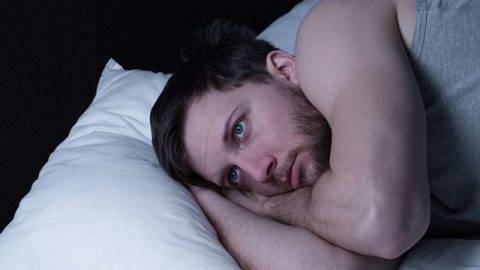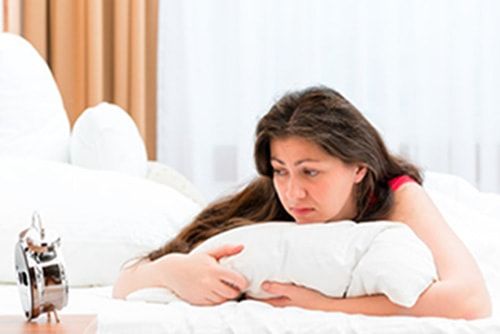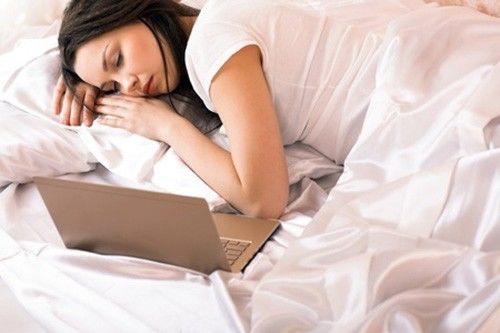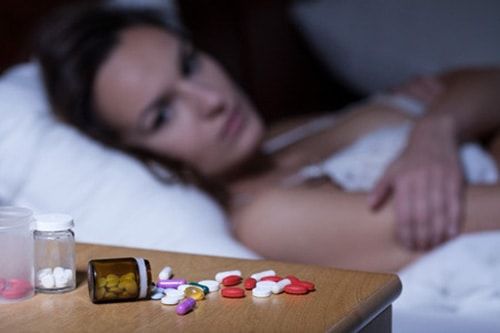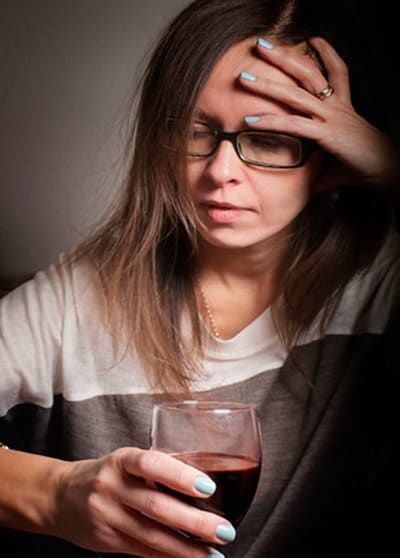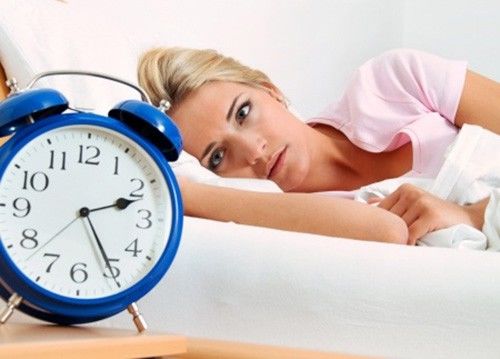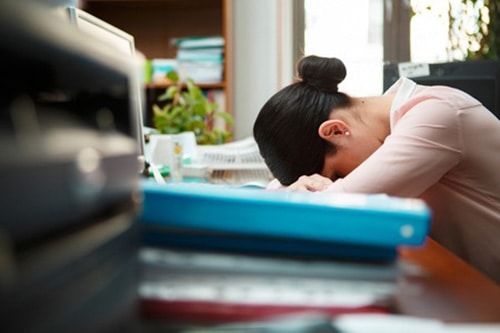Do you struggle to sleep? Do you spend hours staring at the ceiling only to drop off what seems like minutes before the morning alarm?
If this sounds like you, then you could be one of the millions of people suffering from insomnia. The official diagnosis is finding it difficult to fall asleep or stay asleep for prolonged periods. For some sufferers, there is a short bout of sleeplessness over a period of a few days or even a week. This is often triggered by a traumatic event such as the loss of a loved one or even anxiety and stress.
But for 30% of the population, insomnia is a debilitating condition affecting every aspect of your life. Lack of sleep is not only frustrating but it can lead to long term health problems and complications.
If you’re searching for an answer, or just want to find out more about why this is happening and what you can do to stop it, we’ve put together a list of insomnia statistics to give you everything you need to know.
#1. Women Suffer Worse Than Men
We all know the joke that men struck down with “man flu” are hit worse than women, but with insomnia the facts show women are more likely to suffer than men. In fact, a survey shows women are twice as likely to be hit by insomnia.
A 2002 study showed more women were finding it hard to get to sleep, and stay asleep, every week. Women also reported feeling sluggish and drowsy during the day. It is thought menstruation, pregnancy or the menopause can make women more prone to suffering insomnia than men but experts are still looking for a definitive cause for this gender divide.
Scientists think the way hormones change in a woman’s body through the month and over the years can affect how she sleeps. The two main hormones that affect a woman’s sleep are estrogen and progesterone. Doctors hope by understanding how these hormones affect the ability to sleep they can develop a treatment for the millions of women struggling to get a good night’s rest.
#2. More Than Half of all Americans are Regularly Losing Sleep Because They Are Worrying
We all know that feeling of something “weighing” on your mind. It can feel like it is impossible to switch off and slow the train of thought. Inevitably, you end up laying awake running over your fears and anxieties – unable to relax your brain and get to sleep.
Reports say more than half of Americans are regularly losing sleep because they can’t stop worrying.
Concerns about careers, worry over family members and money trouble tops the list of reasons insomniacs are laying awake at night. But while you might be worrying about your job prospects, the irony is that many employees say they actually call in sick or even doze off at work after their anxiety kept them up all night.
Suffering from anxiety is crippling enough so it can seem unfair that it also deprives you of your sleep. There are things you can do though. Seeing a councillor for hypnotherapy can help you untangle your subconscious and learn how to quieten your thoughts before bed.
Another useful technique for tackling late night anxiety which is keeping you awake is meditation. There are loads of free step by step guides that teach you how to meditate and even beginner’s guides on YouTube. Buddhist monks have been meditating for thousands of years but in more modern times it has become a recommended technique for relaxation and a treatment for anxiety.
#3. Insomnia is More Common Than You Think
You may think you are the only person in the world who can’t get to sleep when the clock reads 3am and you’re struggling to drift off – but you’d be wrong.
More than 30% of people suffer with insomnia on a regular basis. This ranges from mild bouts of just a few days of sleeplessness to the worst cases where people go for weeks or even months without a single night of unbroken rest. At some point in their life, one in three people will suffer insomnia.
Insomnia has no boundaries and affects people living in both the developed and developing world. Many workers are barely getting six hours sleep a night which has a detrimental impact on overall health and productivity.
#4. If You Suffer with Depression, You Are Also Likely to Find It Difficult to Sleep
As many as 80% of people diagnosed with depression also find it difficult to sleep. The two conditions often trigger each other. Doctors have discovered patients that suffer from regular periods of sleeplessness are three times more likely to go on to be diagnosed with depression.
Equally, people who are diagnosed as depressed reported an inability to get to sleep or feel refreshed after sleeping. Psychiatrists have found that by treating one of the problems, the other usually goes away.
Depression has many different types and symptoms which can be difficult to recognise and treat effectively. Many patients trial several methods of treatment including medication, counselling and alternative treatments before they find a way of dealing with it that works for them.
Insomnia is not just a symptom of depression however; they are two different problems with their own symptoms and characteristics. What has become clearer to medical professionals is how the two conditions can overlap and by treating them both the patient has a better chance of living a happier, normal life.
See related post: The Relationship Between Sleep And Depression
#5. Alternative Treatments Can Help Alleviate Insomnia
If you feel uneasy about prescription pills or sleep aids, there are many different alternative treatments which have been proven to help some insomniacs. Relaxation techniques like massage, meditation or even just taking a warm bath can help you to drop off to sleep.
Herbal teas are also a tried and tested alternative treatment. The most well known example is Chamomile tea which is known to have relaxing and soporific qualities. But there are other alternatives for herbal teas which can also aid a better night’s rest. Blends including Valerian, St John’s Wort and even peppermint have all been recommended to insomniacs needing treatment.
Apart from tea, lavender is well known for its soothing qualities. Many bath oils and bedroom scents are infused with the flower which has been proven to improve sleep. It can even be taken in the form of capsules to help with alleviating insomnia and anxiety.
Opinions on alternative treatments are mixed. Some experts dispute their usefulness citing a lack of evidence but the anecdotal reports from insomnia sufferers are often enough for patients to try an alternative treatment. But before trying any alternative treatment, you should always discuss it first with your doctor to make sure it is right for you.
You may want to read: Best Sleep Aids for Insomnia
#6. Napping Can Cause Insomnia
While many of us haven’t indulged in an afternoon nap since we were in nappies, there are some experts that think sleeping during the day could be affecting the quality of our sleep at night time.
You might not think it but taking a short sleep of around 20 minutes in the day is very common. Nearly 75% of young and middle aged adults said they regularly napped when asked in a survey. The popularity of a “siesta” is common in many countries, especially in warmer climates, but if you’re suffering from insomnia it might be the underlying cause.
While insomnia sufferers can find themselves in a pattern of difficult or disturbed sleep overnight, they should resist the temptation to sleep during the day. Worse still, sleeping late in the day can actually make insomnia worse as it disrupts your body’s natural rhythm.
#7. There is a Link Between Insomnia and Weight Gain
Grabbing a sugary drink or picking up that calorie packed doughnut can give you a temporary hit of energy but your cravings could be coming from somewhere else.
Studies show a lack of good quality sleep can trigger a hankering for fatty and sugar-filled treats during the day. Incredibly, even people getting just under six hours of sleep at night are at risk. While the fatigue brought on by a bad night’s sleep can lessen our resolve to resist temptation, we might also be doing longer term damage by not getting enough sleep.
Hunger signals are caused by two hormones – ghrelin and leptin. The first tells you when you are hungry and the second is the trigger when you are full. A sleepless night can lead to an increase in the amount of ghrelin your body produces and a decrease in leptin. This means you’re tricked into thinking you are hungrier than you are and eat more than you should.
This can have a profound effect on your body. A survey showed people that slept less than three hours a night for a prolonged period saw a 5% increase in body weight.
And it isn’t just adults that are suffering. Children who aren’t getting enough sleep are becoming obese and sleep deprivation also affects teenagers’ weight. Children aged between 12 and 19 are more likely to be overweight if they are not getting enough “dream sleep” known as REM.
This puts children, the same as adults, at risk of weight related health problems such as diabetes and high blood pressure.
#8. More Than 10 Million People Are Regularly Taking Sleeping Pills
Many people turn to prescription drugs to help with their insomnia. Doctors who prescribe sleeping tablets tell their patients not to drive or carry out any work that needs concentration after taking any of the tablets due to their potent effect. Any medication is usually given alongside a sleep management plan which sets out some alternative methods and routines.
There are different types of prescription medication which is tailored to suit each sufferer. Some allow you to get to sleep easily but are not effective in stopping patients from waking up in the middle of the night. Others are designed to allow you to get a full seven or eight hours of unbroken rest.
Another drug works by resetting the sleep/wake cycle and some antidepressants are also helpful in treating sleeplessness.
If you’re suffering from mild insomnia, over the counter sleeping aids can help. These are generally antihistamine based medication which can help you get a good rest but will sometimes remain active into the next day.
#9. Staying Up Late Can Trigger Insomnia
Do you work shifts or stay up late to finish work? Keeping irregular hours can trigger insomnia. If you’re working overnight or on an irregular shift pattern you will disrupt your body’s natural rhythm and could find yourself struggling to sleep. The flipside of this problem is that while you could find it challenging to sleep during the day, you actually have to fight to keep yourself up while at work.
The reason is because of something called the Circadian Rhythm. This is also known as your “body clock” and it helps you to regulate when it is time to sleep and when it is time to wake. With night shifts, your body is working against its natural rhythm. Day time is our natural cue to be awake and as darkness falls we start to automatically prepare for sleep.
If you are forcing yourself to stay awake all night to work, you’re actually going against your own body’s needs. This is why it can be so hard to fall asleep during the day – even if you have had little or no sleep overnight.
Circadian rhythms don’t just tell us when to sleep, they also let us know mealtimes and the daily cycle is important for brain activity, hormone production and cell regeneration in all animals.
#10. Alcohol Can Disrupt Your Sleep Pattern
While you might find you drop off immediately after having a glass of wine or two, studies show that drinking alcohol can actually disrupt your sleep pattern and cause insomnia.
Some insomniacs may turn to alcohol as a relaxant to help them drop off but it might actually be having the opposite effect as it has been shown to mess with your body’s sleep regulating system.
Over time, the continued use of alcohol as an aid for sleep can actually lead to insomnia researchers from the University of Missouri School of Medicine have found. So while the sleep inducing ability of the odd glass of wine or “nightcap” are well known, in the long term it could actually be doing more harm than good.
Around 20% of adults in America say they regularly drink an alcoholic beverage to help them get to sleep.
But a five year study found the drug interferes with the brain and affects sleep homeostasis. This is the balance your body naturally finds between your body’s need for sleep and how long you have actually been awake.
If you’re not sleeping enough, the amount of adenosine your body produces increases and it makes you feel drowsy. But if you drink alcohol, it tricks your body into increasing your need for sleep. This could mean you fall asleep earlier and end up waking in the middle of the night.
But you can’t just go cold turkey and hope your sleep pattern will return. Alcohol withdrawal also has an effect on how you sleep. After long periods of drinking, participants in the university study fell straight to sleep. But, after a few hours, they would wake up and be unable to go back to sleep.
The research also found drunk subjects also had less REM sleep and didn’t fall into a deep sleep.
So the doctor’s advice is clear: if you are suffering from insomnia, don’t drink alcohol. While you might fall asleep quicker in the short term you are simply storing up problems later down the line.
#11. There Are Three Types of Insomnia
You might have been surprised to hear how common insomnia is but you’ll be even more shocked to discover there are actually three different types.
The most common type is called secondary insomnia. This is where the sleeplessness is a symptom of another problem. This can include heart or lung disease, pain from a recent operation or underlying health problem, anxiety or depression, medicines, caffeine or alcohol or restless leg syndrome.
The good news is if you suffer from any of the problems listed above, you’re likely to be treatable. Whether through medication, counselling or just changing your diet you can tackle the problem and soon be on the way to getting a good night’s sleep.
But for the other, rarer, type of insomnia the trigger remains a mystery. Known as primary insomnia, the cause cannot be traced back to medical or dietary reasons. Thankfully this condition is rarer than the common secondary insomnia but for those people suffering this condition a cure or any type of treatment still remains elusive.
Thirdly, and most alarmingly, is Fatal Familial Insomnia. This condition is a very rare genetic condition which is passed down through families unknowingly. A person diagnosed with FFI suffers worsening insomnia, hallucinations and delusions. The person may also struggle with confusion similar to that seen in a dementia patient.
There is no cure and patients diagnosed with the fatal condition often only live for a further 18 months after the symptoms start. The mutation is only found in 40 families across the word and only affects about 100 people. It develops in middle age so often parents are unaware the gene has been passed down until it is too late.
#12. Thousands of People Are Driving While Sleepy
While we all know not to drink and drive, driving after not having enough sleep is a frighteningly common occurrence for millions of people.
A recent poll showed 60% of people have driven while feeling sleepy and a terrifying 37% had actually fallen asleep at the wheel.
While women are more likely to suffer bouts of insomnia, it is actually men that are more likely to drive while tired. Around 100,000 car crashes are believed to be as a result of a tired driver every year. There are 1,550 deaths and 71,000 serious injuries annually which are attributed to drivers being too tired to concentrate properly on the road.
And even these alarming figures might actually be higher. Unlike driving drunk or on drugs, there is no test to determine whether someone is too fatigued to drive.
And sleep deprivation through insomnia increases the risk of being involved in a crash. The less you sleep, the more likely you are to be killed or seriously hurt on the roads. People who sleep only six to seven hours a night are twice as likely to be in a crash as those sleeping for eight hours. This statistic jumps to up to five times more likely for people who managed to sleep for less than five hours.
#13. Lack of Sleep Can Have a Serious Impact on Your Relationships
It’s not just your own life lack of sleep can affect, statistics show a lack of sleep is the main reason given for not being intimate with your partner.
A few sleepless nights can soon kill off your sex life, a study has shown. A poll of 827 men showed those who snored were less likely to have satisfying sex lives.
Far from using it as an excuse to avoid your partner, a lack of sleep can leave you far too drained to contemplate enjoying yourself with your other half. The pressure put on couples, childcare, long working hours and even pets, can be demanding and lead you to burn the candle at both ends, which in turns leads to an unsatisfying love life.
#14. People Sleep Less Now Than a Century Ago
You may have long suspected that you are working more than our ancestors ever did but the facts are there to back it up. People are sleeping 20% less than they did just 100 years ago.
History tells us that it is not only the length of sleep that has changed, but the way we sleep too. Back in the 1800s, people actually broke their sleep into two chunks. Research found the way we sleep today, trying our best to get a full eight hours of unbroken sleep, is very different to how our great, great, grandparents did things.
Sleeping was done over 12 hours with a “first sleep” of around three to four hours followed by a period of being awake which lasted up to three hours. Then people would go back to sleep until morning.
This “between sleeps” period was used for reading or praying, usually if not always confined to their bedrooms. Some others would smoke or even leave the house to see neighbours.
Despite this segmented sleep being very common in days gone by, it died out with the invention of electric lighting which meant people were able to stay up later. And it was from there that the myths of needing one unbroken block of eight hours sleep was born.
#15. Caffeine is Not Your Friend
Studies show that the intake of caffeine can disrupt your sleep in a major way. It’s even been proven to affect your night’s rest if taken up to 15 hours prior to heading to bed. For frequent caffeine users, this may not be the issue because they’ve built up a tolerance to the subtle drug. But those who are not accustomed to it can feel the affects from their morning cup of joe well into the night.
Although caffeine has been known to really help other issues such as suicidal tendencies, anemia, and hypoxia, it’s probably something to avoid if you’re suffering from insomnia. Kind of a no-brainer, but sometimes it just has to be said.
#16. The Financial Impact
The actual statistics surrounding insomnia and the financial impact it has on consumers, businesses, and the economy in general are astronomical. It’s calculated that the US economy suffers a loss of more than $150 billion dollars each and every year due to a tired workforce. People calling in sick, on the job accidents, under performances, etc. These are all major issues revolving around one simple problem; sleep loss.
You might be interested in: How to Sleep Less
Conclusion
So if, like me, you struggle to drop off to sleep at the end of the day or find yourself jolting awake in the early hours, hopefully this list of insomnia statistics will be useful. Knowing the underlying causes of insomnia, and just how common the condition is, can help you put your mind at rest and consider treatments. If prescription drugs aren’t for you, then there are alternative treatments available.
Please leave your feedback below and if you’ve found this article useful share it with someone you think could use some help in getting a good night’s sleep.
